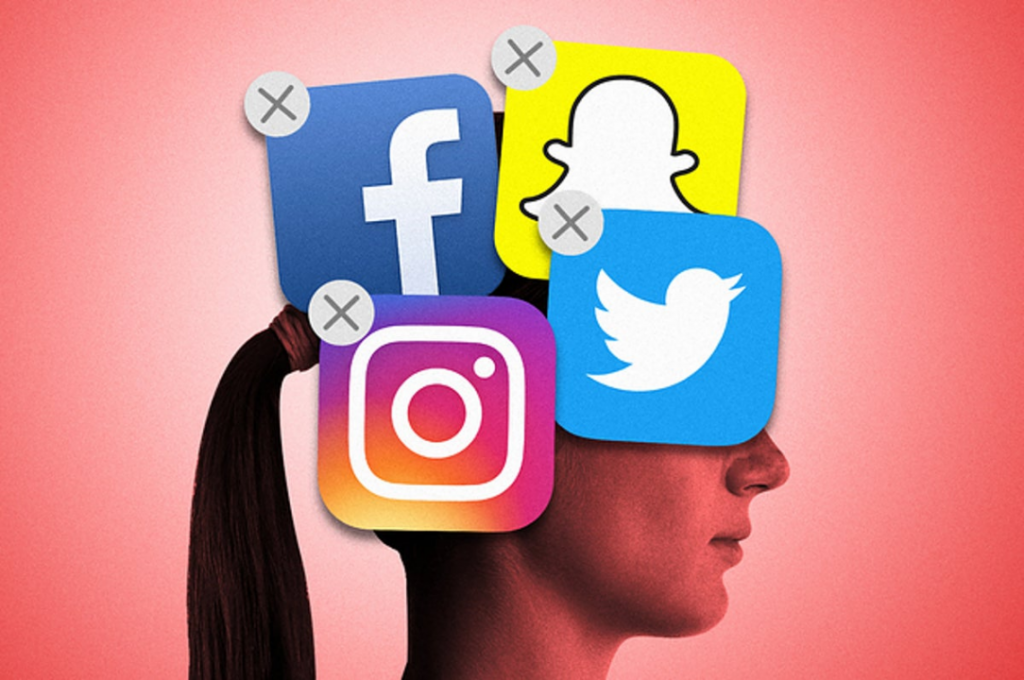
Social media has certainly become an important part of our daily lives, serving as a means of connection, communication, and escapism. In 2024, over 5.17 billion people worldwide were using social media, underscoring its pervasive impact on society.
But is this impact a cause for concern?
According to research conducted by the Royal Society for Public Health, excessive social media use can result in low self-esteem, depression, or anxiety. These challenges are particularly common among younger generations, such as Generation Z, who have grown up in an era where social media pervades every aspect of their life.
It All Started Innocently
My introduction to social media began when I started high school. Instagram and Snapchat were quickly gaining popularity, and they were now only a tap away in my back pocket.
Soon, my eyes became glued to my phone screen, constantly looking for notifications and updates.
As a young teen, your worldview is still developing, which makes you more likely to follow trends. At the time, everyone was using these apps, and I was worried about missing out if I didn’t keep up with the latest news.
Now, I Understand Why The Addiction Began.
While social media may appear to be mindless entertainment, studies have shown that it has a significant impact on the brain. Likes and views can activate the brain’s reward centre, causing dopamine to be released—the same chemical that is released when using drugs or alcohol.
I recall that whenever I stopped using social media, I felt a drop in dopamine and a strong desire to return to these apps.
My mood gradually changed. Despite my best efforts to ignore it, I couldn’t shake the feelings of anxiety and low self-esteem.
I didn’t understand why I was feeling this way at the time, so I used social media as a coping technique. Little did I know that the solution I relied on to calm my emotions was increasing the problem.
The Dangers Of Social Comparison

The link between social media and conditions such as depression, anxiety, loneliness, and distorted body image is well established, with social comparison playing a significant role. According to research, extended exposure to curated postings and beautiful depictions of other people’s life promotes a toxic environment of self-comparison.
This was indeed true in my circumstance. The worse I felt, the more I browsed.
In my final year at secondary school, Instagram had become a status symbol among my classmates. It was a platform for external validation, where people shared details about their life in order to feel pleased, belonged, and develop a sense of identity.
I constantly compared my followers and likes to those of my classmates, and I remember never feeling satisfied because someone always had more.
Then, I Decided To Stop

Quitting social media caused me anxiety at first because I was afraid of missing out (FOMO). However, without Instagram and Snapchat, I couldn’t scroll or post to get validation.
I started to feel liberated. It was as if a massive weight had been lifted off my shoulders. I saw a significant difference in my thinking; I was no longer overwhelmed, especially in the mornings when I used to scroll through my phone.
During my college years, I gradually began to feel more normal. This was particularly helpful because my friends were on the same journey as me. I remember we all made the conscious decision together to stop using these apps, knowing they were the issue.
I’ve been fortunate to maintain the same friendships since childhood. We grew up together, sharing the same beliefs and interests.
However, I recalled that before we collectively decided to stop using social media, our conversations were often surface-level.
Of course, we were young at the time, so we didn’t have much to talk about and just focused on having fun. But at some point, we grew up, and the conversations we had started to matter.
As someone who craves mental stimulation, I much prefer engaging in deep conversations about topics that truly interest me rather than consuming content that lacks importance. That’s the issue with social media, it doesn’t foster an environment where meaningful conversations can thrive because it has diminished people’s attention spans. Instead, it presents a landscape filled with underdeveloped and trivial topics.
Since quitting social media, I’ve experienced some of the best conversations. By focusing more on the people around me, I can engage in discussions that genuinely matter. No longer constantly checking my phone, I feel much more present and attentive.
Stepping away from social media has reminded me of the value of human connection, reinforcing the importance of being fully engaged with those around me.
My Mental Well Being Has Significantly Improved
According to University of Pennsylvania research, restricting social media usage reduces feelings of loneliness and sadness while also slightly reducing anxiety.
What became most evident to me since quitting social media is the positive change I saw in myself. During my teenage years I wasn’t very confident, but since quitting social media, my self – confidence had increased significantly.
Without the distraction of social media, I began to focus more on my personal growth and real-life interactions. I started engaging in new activities, meeting new people and putting myself in uncomfortable situations.
The absence of constant comparison had allowed me to embrace my life as it is and appreciate what I have, without worrying about what I lack or what I might want to change about myself.

How Do I Feel Now?
A couple of years later, I’m glad to have left the world of social media behind. It turns out that I don’t need it anymore. Now, I just use LinkedIn for professional purposes and Instagram once a month to remain in touch with friends. That’s it for me.
Quitting social media has significantly improved my overall well-being and personal growth. I now wake up each day feeling relaxed and end each day feeling fulfilled.
Indeed, it’s important to remember that we do not have to use these platforms. Social media is optional. It’s offered as a source of entertainment.
If you’re someone experiencing anxiety, depression, or loneliness, quitting social media can significantly improve your mental health.
Ultimately, the decision to quit is entirely up to you.


